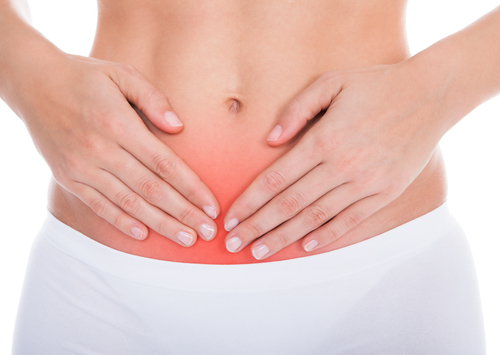
Cystitis is one of the most common diseases of the urinary system in women aged 15-45 years. However, the severity of the problem lies not only in the prevalence of the disease: an important role is played by high incidence of chronic inflammation with repeated episodes of exacerbations and complications diseases. The high risk of chronicity and development of complications is associated, first of all, with untimely and inappropriate treatment, lack of an integrated approach to treatment and inappropriate prevention subsequent relapses. In the future, even the impact of minor provoking factors (the slightest hypothermia, alcohol intake, spicy and salty foods) can activate a dormant infection in the bladder wall.
It is important that repeated exacerbations of chronic cystitis can lead to complications of the disease: vesicoureteral reflux, pyelonephritis and interstitial cystitis.
Reflux is the return of urine from the bladder to the ureter and pelvis, which is critical in the development of acute pyelonephritis as a complication of the disease. Pyelonephritis, unlike cystitis, manifests itself not only with unpleasant symptoms, but also with multiple disorders of homeostasis: changes in water and electrolyte balance, metabolic disorders due to the accumulation of nitrogen metabolism products, disorders hematopoiesis. The progression of such disorders quickly leads to the development of renal failure and further disability.
Interstitial cystitis, or chronic pelvic pain, is inflammation of the deep muscle layers of the bladder wall. Prolonged pain in the perineum and suprapubic region, characteristic of this complication, worries regardless of exacerbations and remissions of chronic cystitis, and also practically does not respond treatment.
Hemorrhagic cystitis is a complication that sometimes develops on days 2-3 of an exacerbation of the disease. The discharge of blood from the urethra can be from slight (a few drops at the end of urination) to massive bleeding when the urine is completely stained with blood. With severe bleeding, the patient will be bothered by severe weakness and dizziness up to loss of consciousness, subsequently a persistent anemic syndrome may develop.
Only timely, and most importantly, complex treatment of cystitis will help to avoid such complications. Many believe that antibiotics are fundamental. This is partly true, you cannot do without antibacterial drugs, but there are other means, which not only affect the symptoms of inflammation and pain, but also enhance the effect of the main therapy. Along with antibacterial drugs, an important part of the complex therapy of exacerbation of chronic cystitis are antispasmodics, non-steroidal anti-inflammatory drugs and phytopreparations, for example, "UROPROFIT®", the active components of which are distinguished by anti-inflammatory and antimicrobial action, eliminate spasm of the urinary tract. Biologically active substances that are part of "UROPROFIT®" help to reduce pain, normalize the frequency urination, normalize the functional state of the urinary system, reduce the likelihood of repeated exacerbations of chronic cystitis. **
Prevention of repeated exacerbations must also be carried out in a comprehensive manner. It should include both medication and physical measures - a correct diet with the exception spicy and salty food, a balanced drinking regimen of more than 2 liters per day, refusal of alcohol and strong coffee. Hypothermia also plays an important role in exacerbating the disease, therefore you need to dress for the weather and avoid sitting on cold surfaces and swimming in cold waters. Strengthening general immunity includes an active and healthy lifestyle, as well as timely treatment of any colds.
Only such a combination of complex treatment and prevention will allow avoiding painful relapses of chronic cystitis and its main severe complications.
Dolganov I.M., urologist-andrologist of the first category, employee of the Department of Urology and Surgical Andrology, Russian Medical Academy of Postgraduate Education.
** Instructions for the use of dietary supplements for food UROPROFIT®



